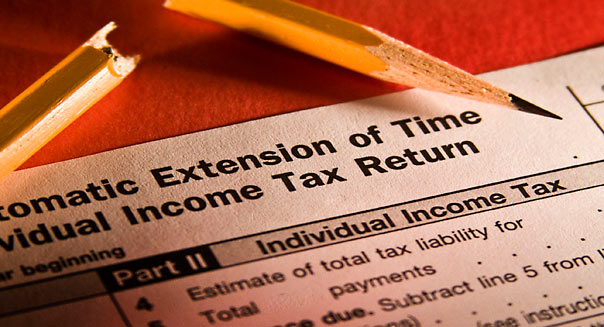
If this year’s tax filing deadline sneaked up on you, you were hopefully smart enough to file for a tax extension and buy yourself an extra six months to get your return over to the IRS. And while you still have roughly two and a half months until the Oct. 15 extension deadline, it never hurts to start thinking about how you’ll tackle your return. Of course, avoiding a few common pitfalls will make filing your taxes a lot less stressful, so here are some major mistakes you’ll want to steer clear of.
1. Waiting until the last minute once again
Some people don’t get their tax returns in by the original deadline because they procrastinate too long and run out of time. If that’s the reason you never managed to get your return done in April, don’t put yourself in the same position this October. Instead, start gathering your paperwork today so you can report your income accurately, and gather whatever documents and receipts you need to figure out your various deductions.
Another thing to keep in mind is that just as it’s hard to find a tax preparer at the last minute during the regular season, the good ones might all be booked as October rolls around. Remember, you’re not the only person who requested an extension, so if you want help getting your return completed, don’t wait too long to hire someone for the job.
2. Accruing too much interest on your unpaid taxes
One major misconception about tax extensions is that they give you extra time to pay whatever tax debt you owe. Not so. The only thing a tax extension will do is buy you additional time to submit your return. If you end up owing money on your taxes, filing an extension will allow you to avoid the failure-to-file penalty, which is 5% of your unpaid balance per month or partial month you’re late with your money. It won’t, however, help you avoid the late payment penalty, which is 0.5% of your outstanding tax debt for each month or partial month you fail to pay, up to a total of 25%.
In other words, if you think you underpaid last year’s taxes, don’t wait until October to figure out how much you owe and start dealing with that balance. In doing so, you’ll only accrue additional interest. Instead, aim to calculate your outstanding balance ASAP and see about paying it off. If you can’t pay it in full, there’s always the option of requesting a payment plan from the IRS instead.
3. Filing an erroneous return
The last thing you want is to wait six months to get your taxes done and then have your return rejected. But if your return contains errors, that’s what will most likely happen. You can pretty much count on having your return rejected if you:
- List the wrong Social Security number.
- Spell your name wrong, or enter the wrong name (this might happen if you recently changed your name, whether due to marriage or divorce).
- Enter the wrong tax filing status.
Furthermore, you might run into problems with your return if it contains math errors the IRS can’t reconcile itself. The same holds true if you claim a tax credit you aren’t actually eligible for.
Finally, if you’re due a tax refund, make sure to double check your bank account details. Listing the wrong information will result in an even further delay of your cash, and after waiting six months to get at that money, that’s just not what you want.
Tax extensions exist for a reason — to help tax filers avoid rushing through the process, or avoid getting penalized when circumstances outside their control cause them to be late with their returns. But that doesn’t mean you should sit back and relax on the tax front until October rolls around. The sooner you deal with that return, the less stress you’re apt to encounter down the line, so carve out some time this summer to finish your taxes, even it means taking one afternoon off from the beach.
























